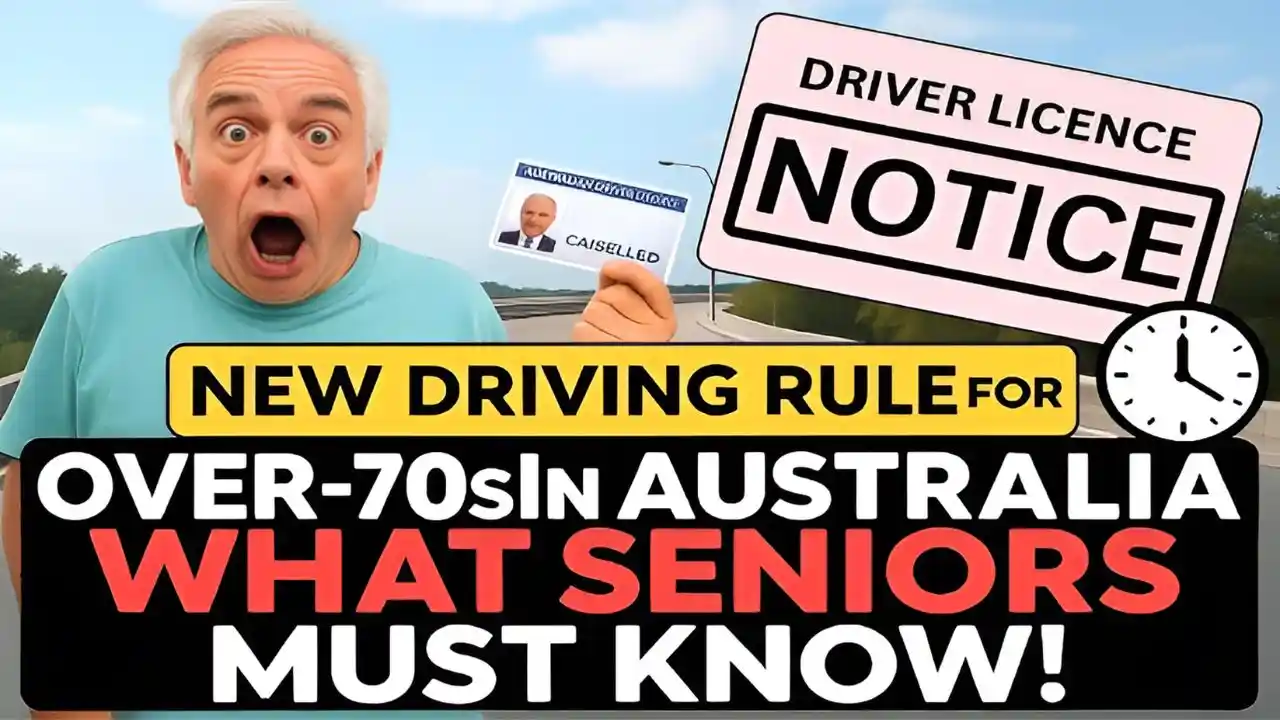Starting October 2025, major changes in the driving licence rules for Australians over 70 years of age will come into force. The government has essentially introduced new sets of regulations into the system, so that road safety is enhanced while allowing senior citizens their independence for as long as possible. These changes shall affect thousands of drivers throughout the nation, rendering it thereby important for aging motorists and their families to understand these changes.
Why the Rules Are Changing
Road safety authorities have been reviewing data on accidents involving senior drivers, and the results demonstrate that age-related factors such as slower reaction times, decreased vision, and medical conditions can interfere with driving abilities. The truth is that many in their 70s continue to drive safely, but the government sees the new regulations averring strict balance between the safety of the roads and justice for the aging motorists. The changes also fit well with what most other countries do, as the practice of regular medical and driving assessments for seniors is commonplace there.
The New Licence Renewal Process
One of the most eye-catching features of the new laws is the changes to the renewal of driving licences for those aged 70 and above. From October 2025, people over 70 will no longer be able to automatically benefit from extended periods for licence renewal. They will now have a mandatory medical assessment prior to any renewal being granted. Depending on the state or territory, they may have to undertake vision or driving tests as well to prove their fitness to drive.
Medical and Fitness Assessments
Firstly, medical assessments will become an integral part of the licence renewal procedure. For instance, senior drivers will have to obtain OFFICIAL clearance from their doctor for their physical and mental fitness to drive. Conditions such as poor eyesight, memory loss, and restricted mobility will be scrutinized. The doctor will recommend restricted licences in certain situations, allowing the senior to drive only under specified conditions. One such condition is permitted driving during daylight hours or within an allowed distance from home.
Licence Validity Periods
Another key change will affect how long licences shall be valid. Instead of longer five- or 10-year licences, over-70s will be granted short-term licences that may be renewed every one or two years, depending on their medical status. It ensures frequent reviews and maintenance of senior drivers’ safety on the road.
Support for Seniors
The government has reaffirmed that the changes are not intended to restore older Australians of any independence but to enforce safety. There will be programs to support these senior people in migrating, including refresher courses for driving, free health-related medical checkups, and information sessions on safe driving. For those who are no longer capable of driving, transport concessions and community transport services are also there with an aim to lessen the adverse effect of losing driving rights.
How It Will Affect Families
These changes, too, will affect families often relying on their older members to drive. In many homes, older drivers give transport for support to their grandchildren, errands, and social visits. Families should begin opening discussions with their elderly family members about these impending changes and starting to plan for alternate transport where necessary.
Conclusion
The new Australia over-70s driving licence rules effective from October 2025 are a major change in road safety. Tighter renewal conditions create a system that fosters the protection of both elderly drivers and the community at large. From medical examinations to shorter licence validity periods, and extra support programs, the government wants to make sure that when Australians of old age are ready to use their skills to make a road journey, they can do so with confidence, and when it is time to go a little slower, they have the support to do so.
